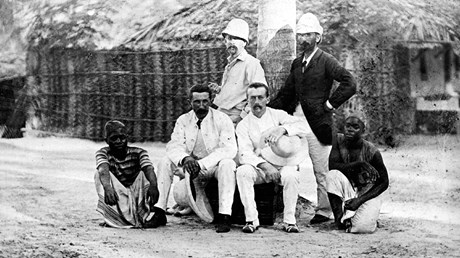They didn’t set out to change history. But one modern scholar’s research shows they did just that.

For many of our contemporaries, no one sums up missionaries of an earlier era like Nathan Price. The patriarch in Barbara Kingsolver's 1998 novel, The Poisonwood Bible, Price tries to baptize new Congolese Christians in a river filled with crocodiles. He proclaims Tata Jesus is bangala!, thinking he is saying, "Jesus is beloved." In fact, the phrase means, "Jesus is poisonwood." Despite being corrected many times, Price repeats the phrase until his death—Kingsolver's none-too-subtle metaphor for the culturally insensitive folly of modern missions.
For some reason, no one has written a best-selling book about the real-life 19th-century missionary John Mackenzie. When white settlers in South Africa threatened to take over the natives' land, Mackenzie helped his friend and political ally Khama III travel to Britain. There, Mackenzie and his colleagues held petition drives, translated for Khama and two other chiefs at political rallies, and even arranged a meeting with Queen Victoria. Ultimately their efforts convinced Britain to enact a land protection agreement. Without it, the nation of Botswana would likely not exist today.
The annals of Western Protestant missions include Nathan Prices, of course. But thanks to a quiet, persistent sociologist named Robert Woodberry, we now know for certain that they include many more John Mackenzies. In fact, the work of missionaries like Mackenzie turns out to be the single largest factor in ensuring the health of nations.
'This Is Why God Made Me'
Fourteen years ago, Woodberry was a graduate student in sociology at the University of North Carolina–Chapel Hill (UNC). The son of J. Dudley Woodberry, a professor of Islamic studies …
Source: Christianity Today Most Read